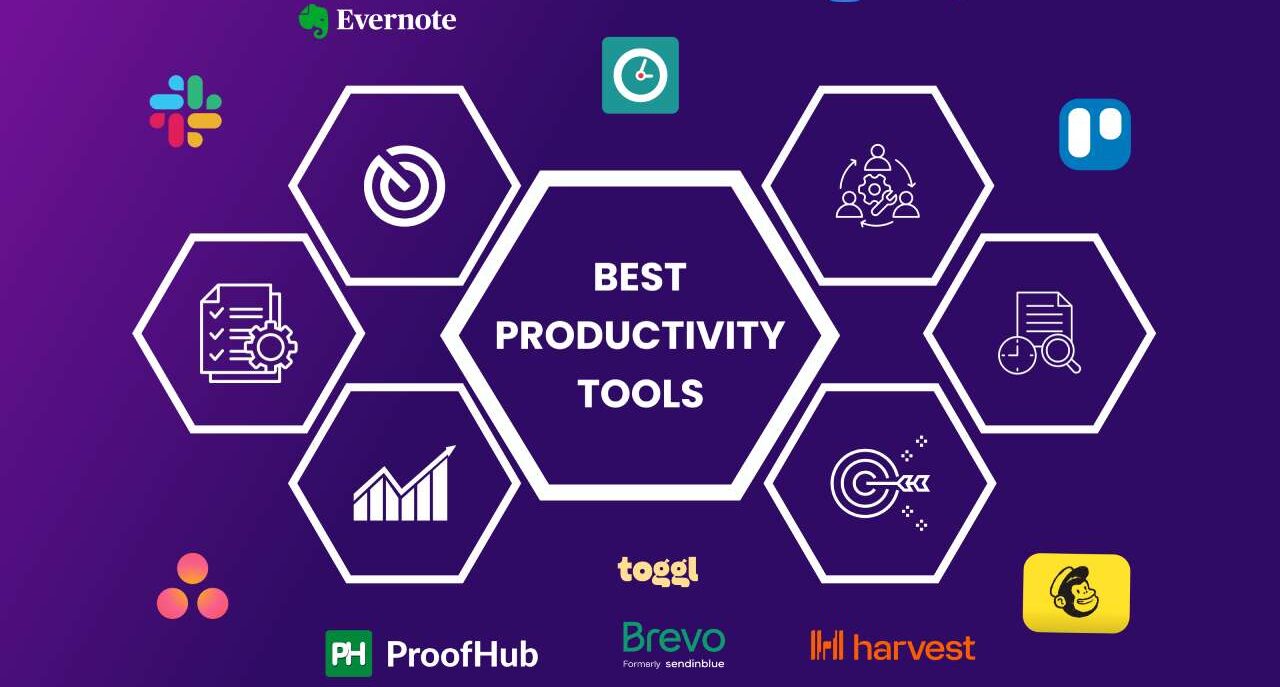Small businesses are continuously challenged to do more with less. From managing emails and scheduling meetings to creating eye‐catching marketing materials and streamlining workflows, the right set of productivity tools can make all the difference. Below, we explore 10 productivity tools that can transform your small business, boost efficiency, and help you stay ahead of the competition.
1. Outlook: Mastering Email and Calendar Management
A robust communication system is the backbone of any small business. Microsoft Outlook remains a top choice for managing emails and scheduling appointments. By consolidating your inbox and calendar, Outlook helps you keep track of deadlines, meetings, and follow-up tasks—all in one place. For many entrepreneurs, having a reliable system for flagging important emails and color-coding appointments can be a game changer. With Outlook, if it’s not on your calendar, you’re less likely to forget it, which ensures that nothing slips through the cracks.
2. Canva: Empowering Your Visual Content
First impressions matter, and in the digital age, compelling visuals can set your business apart. Canva is an intuitive graphic design platform that enables small business owners to create professional-quality marketing materials without the need for advanced design skills. Whether you need social media posts, flyers, or presentations, Canva offers thousands of customizable templates, which save time and elevate your brand’s visual identity. With features like drag-and-drop editing and integrated access to stock photos and videos, Canva helps you craft engaging content that resonates with your audience.
3. Calendly: Simplifying Appointment Scheduling
Time is money, especially for small business owners who juggle multiple roles. Calendly is a scheduling tool that seamlessly integrates with your existing calendar system (such as Outlook), allowing clients and team members to book meetings without the endless email exchanges. By setting up your availability in Calendly, you let the system handle the back-and-forth of appointment setting, which means fewer scheduling conflicts and more time to focus on critical tasks. This tool has become a staple for entrepreneurs looking to optimize their daily routines and maintain a smooth workflow.
4. ChatGPT: Harnessing the Power of AI for Content Creation
Artificial intelligence is revolutionizing how small businesses create and manage content. ChatGPT, an AI-powered tool, helps generate ideas, draft emails, and even write detailed blog posts. Entrepreneurs can leverage ChatGPT to conduct research, produce high-quality written content, and refine messaging for marketing campaigns—all at a fraction of the time it would normally take. Although human oversight remains essential to ensure accuracy and brand consistency, ChatGPT acts as an ultra-powerful assistant that streamlines content creation, letting you focus on strategic business decisions.
5. Zapier: Automating Your Workflow
Manual data entry and repetitive tasks can quickly drain your valuable time. Zapier bridges the gap between different applications by automating workflows. This integration tool connects your favorite apps—whether it’s your email, CRM, or project management software—and enables them to “talk” to one another without manual intervention. For instance, Zapier can automatically transfer information from a new email into your project management tool, create follow-up tasks, or even send out reminders. This level of automation not only minimizes errors but also frees up your team to focus on more strategic, creative work.
6. Mailchimp: Streamlining Email Marketing
Email remains a powerful tool for engaging with customers, nurturing leads, and driving sales. Mailchimp is a leading email marketing platform that offers robust automation features to help you design, send, and analyze campaigns. With Mailchimp, you can build segmented lists, design attractive email templates, and set up automated workflows that trigger based on customer behavior. This helps ensure that your marketing messages are timely and relevant, ultimately increasing customer engagement and retention. For small businesses, the ability to automate email marketing can result in significant time savings and improved ROI.
7. HubSpot: Managing Customer Relationships Efficiently
Customer relationships are the lifeblood of any small business. HubSpot provides a comprehensive CRM solution that organizes and tracks all customer interactions in one central hub. With its user-friendly interface, HubSpot enables you to monitor leads, track sales pipelines, and manage customer communications effectively. The platform’s integration capabilities also mean that data from your email, website, and social media channels can be unified to give you a holistic view of your customer journey. For small businesses, this translates to improved customer service, targeted marketing efforts, and ultimately, increased sales
8. Trello: Organizing Projects with Visual Boards
Keeping your projects on track is essential for sustained productivity. Trello is a visual project management tool that uses boards, lists, and cards to organize tasks and collaborate with team members. It’s simple enough for solo entrepreneurs yet powerful enough for teams. You can create separate boards for different projects, assign tasks, set deadlines, and track progress in real time. Trello’s flexibility allows you to tailor your workflow to suit your business needs, ensuring that every team member is aligned and accountable. This transparency in project management can lead to improved efficiency and a better overview of your business operations.
9. Zoom: Bridging the Communication Gap
In a world where remote work is increasingly common, effective communication is paramount. Zoom has become synonymous with virtual meetings, offering a reliable platform for video conferencing, webinars, and online collaboration. Whether you’re hosting a team meeting, conducting client presentations, or recording a podcast, Zoom’s intuitive interface and robust features make it easy to stay connected. Its breakout rooms, screen-sharing capabilities, and integration with calendar applications ensure that meetings run smoothly, regardless of where participants are located. For small businesses, Zoom not only facilitates better communication but also enhances the overall flexibility of your operations.
10. Google Drive: Collaborate and Store with Ease
Efficient file storage and collaboration are critical for modern businesses. Google Drive offers a cloud-based solution that allows you to store, share, and collaborate on documents in real time. Whether it’s drafting a proposal, updating a spreadsheet, or sharing a presentation, Google Drive’s suite of tools—including Docs, Sheets, and Slides—ensures that your team can work together seamlessly from anywhere. The integration with other Google Workspace apps means that your files are always accessible and up-to-date, which is essential for maintaining a smooth workflow. This level of collaboration and accessibility can significantly enhance the productivity of your team.
Transforming Your Business with the Right Tools
Adopting these 10 productivity tools can have a transformative impact on your small business. By automating routine tasks, streamlining communication, and improving project management, these platforms empower you to focus on what really matters—growing your business. Whether you’re a startup looking to scale quickly or an established company aiming to optimize operations, integrating these tools into your daily workflow can lead to higher efficiency, better customer service, and ultimately, increased profitability.
The key to success is not just in the individual capabilities of these tools, but in how they work together to create a cohesive, efficient system. From managing your emails with Outlook to leveraging AI for content creation with ChatGPT, each tool addresses a specific pain point. When combined, they create an ecosystem that supports every aspect of your business, ensuring that you are well-equipped to handle the challenges of today’s competitive market.
Moreover, many of these tools offer free versions or trials, allowing you to test their functionality before committing to a paid plan. This means you can start small, gradually build your digital toolkit, and scale up as your business grows. By taking advantage of these technologies, you not only save time and reduce manual errors but also empower your team to work smarter and more collaboratively.
Ultimately, the journey to transforming your small business begins with a single step—choosing the right tools. In a digital age where efficiency is directly linked to success, investing in productivity tools is an investment in your company’s future. Embrace the change, automate the routine, and let technology do the heavy lifting, so you can concentrate on driving innovation and growth.
By incorporating platforms like Outlook, Canva, Calendly, ChatGPT, Zapier, Mailchimp, HubSpot, Trello, Zoom, and Google Drive into your workflow, you create a robust, interconnected system that not only supports your current operations but also paves the way for future expansion. Transform your small business today by leveraging these powerful productivity tools—and watch as your efficiency, creativity, and profitability soar.

